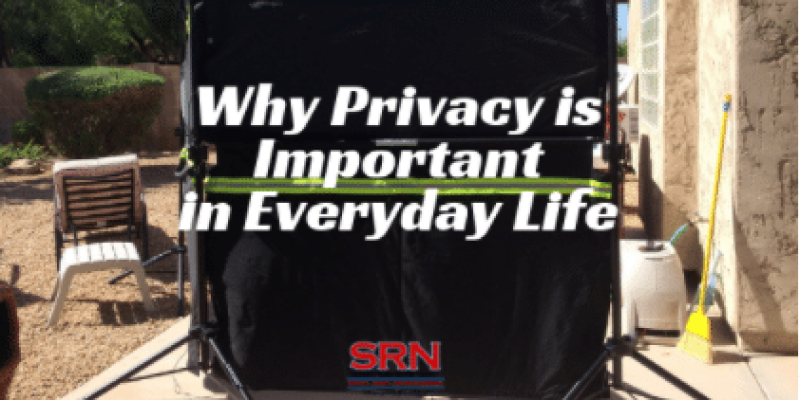No products in the cart.

Everyone needs privacy to live free and fulfilling lives. That is why we have safeguards in place to prepare and protect ourselves from breaches of privacy. We have locks on our doors, passwords for our online accounts and secure places to store our passports and private documents. But what about the times where you aren’t prepared and at your most vulnerable? What about when you are unexpectedly displaced, injured or exposed?
The unfortunate truth is that your privacy is always at risk and it’s often undervalued until it’s lost. At SRN, we are paving the way to create privacy standards during times like these by giving first responders, medical examiners, and aid groups the ability to create a secure environment anywhere. Follow along as we explain why everyday privacy is important and how emergency personnel can maintain privacy standards in the field.
When a person has just been in a traumatic accident, the last thing they feel is safe. Accidents happen everywhere. Armed with the right equipment, first responders can always be prepared to provide privacy and safety. The most common accidents happen on the road. To add to a person’s stress of injury are speeding cars, emergency vehicles rushing to the site and first responders trying to evaluate their health. There isn’t any form of shelter on the road in front of hundreds of motorists.
The SRN 1000 Premier Barrier System is that shelter. First responders can create a private area to make accident victims feel safe again. They can also convert the barriers into a canopy system to shield them from poor weather or media. Rubbernecking is a safety hazard. The National Highway Safety Administration reports that there were 3,450 fatalities as a result of distraction related auto accidents in 2016 in the United States alone. If we can create privacy at the scene of an accident or crime, and prevent bystanders from rubbernecking, we can reduce more accidents from occurring. An auto accident is only one scenario where privacy and safety need to be restored. In addition to safety, a person’s dignity may also be on the line.
Dignity is a human right that should never be compromised when receiving patient care. When your health is in jeopardy, you are at your most vulnerable. Not knowing what is wrong with your body is scary and feeling like you have no control can diminish your dignity. If you are involved in an accident, first responders and medical examiners you are unfamiliar with must work urgently to give you the care that you need. Medical care often requires many levels of undress for examinations and procedures. This can be disorienting and uncomfortable.
That is why it is so important to treat your patients behind the privacy of a protective barrier. Providing privacy can preserve and restore a patient’s dignity. Being treated with dignity is associated with positive outcomes like high patient satisfaction. A survey administered by the World Health Organization published in the 2008 issue of Social Science and Medicine found that most participants selected dignity as the second most important domain in care—only promptness in care was more highly ranked. If you create healthy standards for privacy, you can encourage a security mindset across your organization. Building trust with those you are caring for may equate to better cooperation in both the hospital atmosphere and in the field.
A person’s dignity can also be diminished when their livelihood is threatened. Natural disasters and civil unrest is an inevitable reality. In more recent news we’ve seen hurricanes, fires, flash floods, tsunamis and earthquakes destroy cities around the world. We’ve also seen people escaping their homes in search of safety. The United Nations High Commissioner for Refugees reports that there are 68.5 million forcibly displaced people worldwide. That is 40 million internally displaced people, 25.4 million refugees and 3.1 million people seeking asylum. Displaced individuals deserve privacy. We can give them the privacy they need by providing them with temporary protection with our barrier systems until permanent solutions are available.
We can’t take our privacy for granted. It is a right granted to us that allows the freedoms of expression, association and assembly. We need to demand privacy standards where there aren’t any. At SRN, it is our job to create them. First responders, officers and other emergency personnel need to make the people they serve feel safe and dignified. This can be accomplished by providing them with shelter and upholding their dignity.
Protect first responders, victims & evidence with quick, easy, durable, expandable indoor / outdoor coverage. Fully customizable, easily transportable barriers provide security, privacy, and safety by quickly blocking and barricading accident scenes, restricted zones, and hazardous areas from public view.
SRN Systems, Inc. is the manufacturer of Scene Shields, Triage Tent, and supplier of other accessories.
LOCATION
1955 59th TER E
Bradenton, FL. 34203
BUSINESS HOURS
Monday – Friday: 8am to 6pm
Saturday: 9am to noon

| Website & SEO By: MI Digital Solution